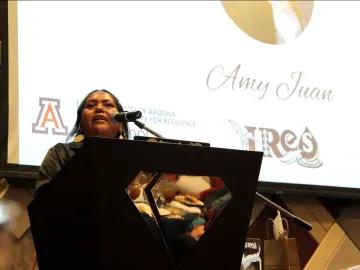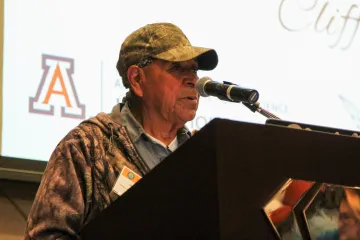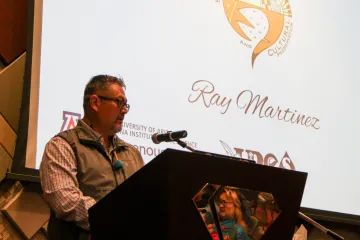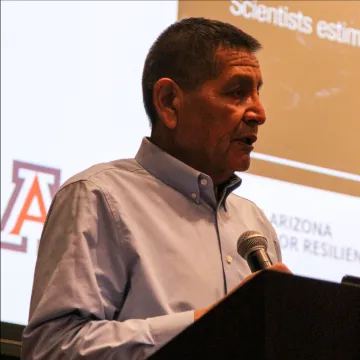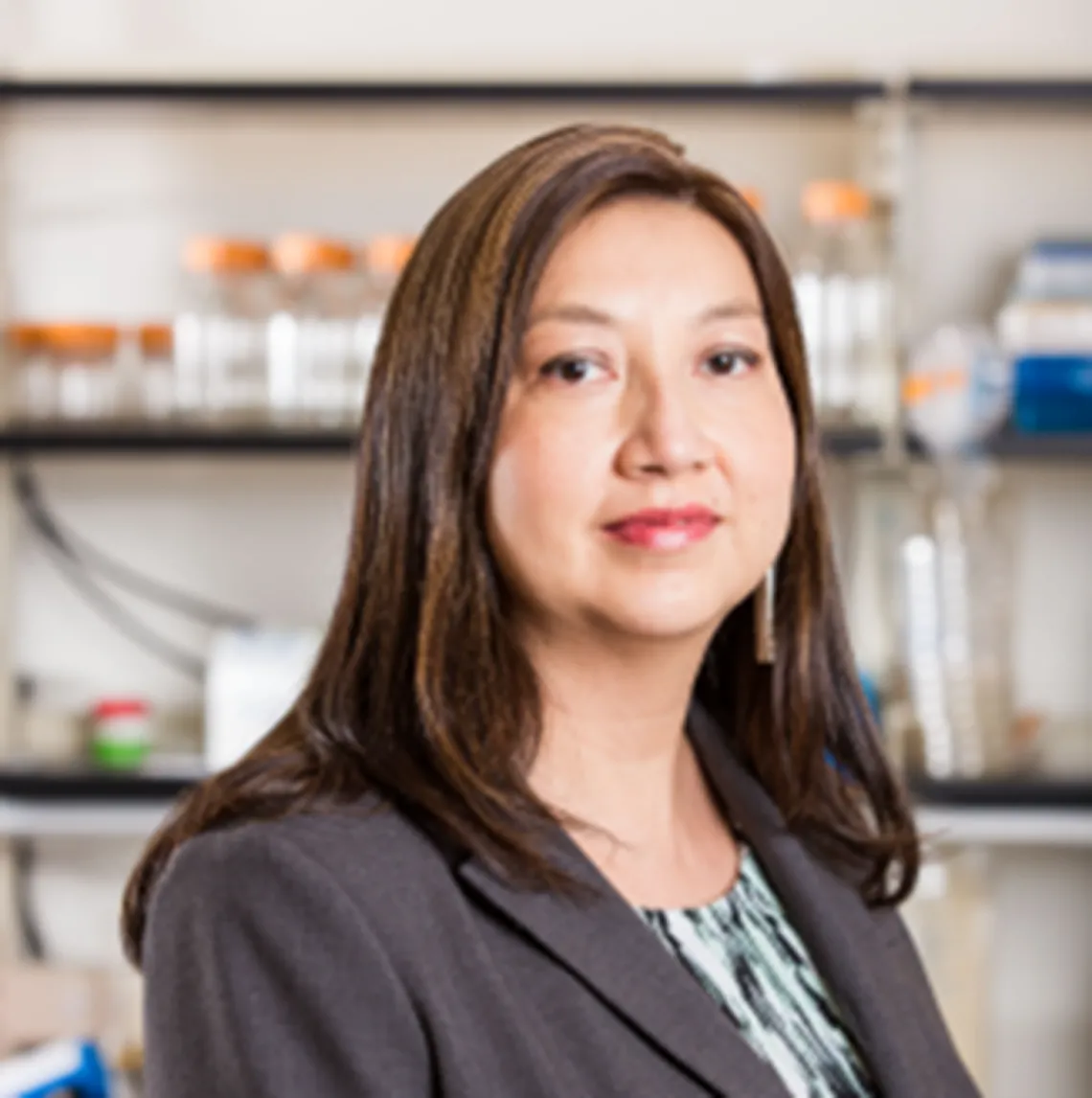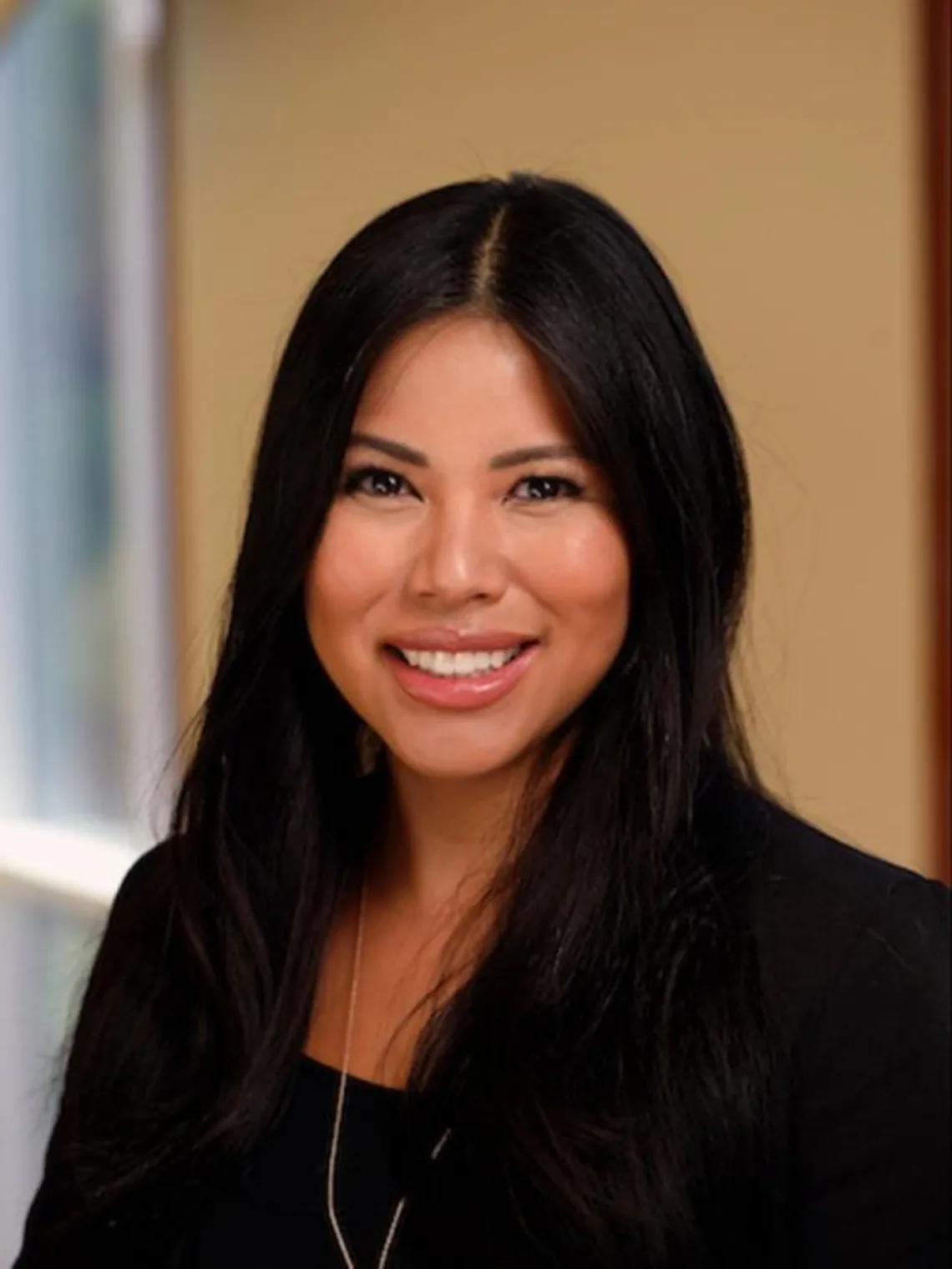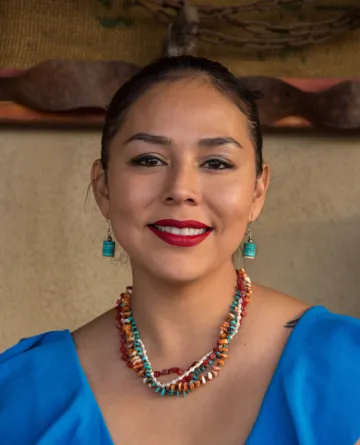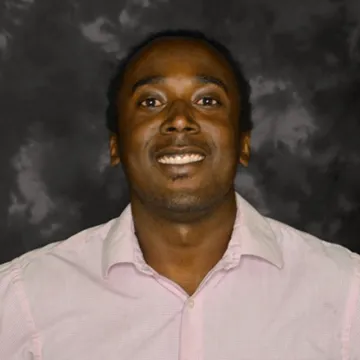2025 Indigenous Resilience Awards
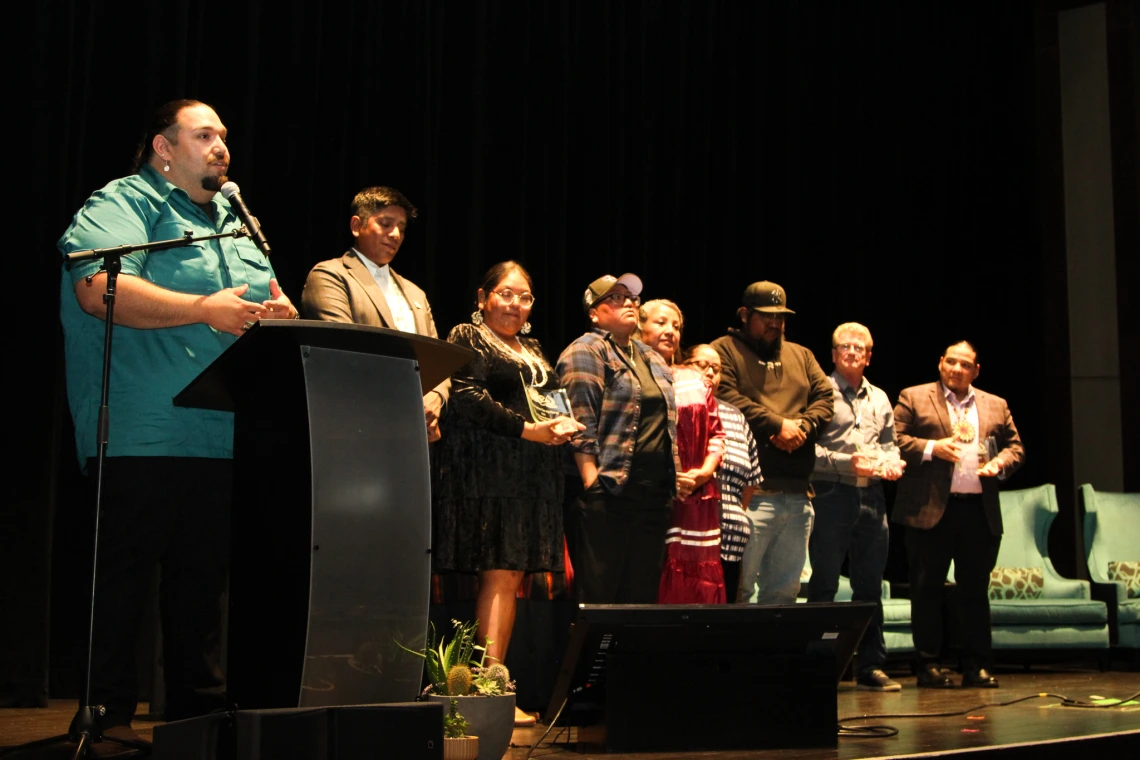
2025 Indigenous Resilience Awards
The 2025 Indigenous Resilience Awards, held during the Tribal Environmental Health Forum, recognized outstanding individuals and organizations who are committed to uplifting, communities, protecting cultural knowledge, and leading with care and strength. This year’s awardees were the following;
Roman Orona
Roman is Apache, Pueblo, and Yaqui. Roman has worked in the environmental field for over 16 years. Roman, currently is the Environmental Programs Manager for the Ak-Chin Indian Community in Maricopa, AZ and the US EPA Region 9 RTOC Tribal Chair. Prior to that, he served as the Environmental Engineer with the Salt River Pima Maricopa Indian Community-Environmental Protection and Natural Resources Department in Scottsdale AZ and as the Deputy Director and Director of Operations of Earth Conservation Corps-Salmon Corps in Portland, Oregon. Roman has a Bachelor’s of Science in Biology, Civil Engineering and a Master’s in Arts, Culture, and Technology. Roman is a Native American performer (dancer, singer, flutist), producer, director and owner of iamHUMAN Media. iamHUMAN Media is a national nonprofit that develops programs to address social discourse, create community and unite humanity through the arts. In 2016, Roman was awarded the Best Male Vocalist Award at the Native American Music Awards for his album “Circling Spirits.”
Trent Teegerstrom
Trent is the Former Sr. Associate Director of Tribal Extension Programs and Extension Specialist, The University of Arizona, Cooperative Extension and The Department of Agricultural and Resource Economics.
Trent is a highly experienced professional in agricultural economics and tribal relations. He served as the Senior Associate Director of the Tribal Extension Program at the University of Arizona and held the role of Extension Specialist in the Department of Agricultural and Resource Economics. Trent’s diverse expertise spans dryland farming in the Midwest, irrigated agriculture in the Southwest, and livestock production across the Northeast, Mountain West, and Southwest regions. With over three decades of dedicated service, Trent has supported tribal communities nationwide, addressing agricultural production and economic development challenges. Since joining the University of Arizona’s Department of Agricultural and Resource Economics in 1997, he has been instrumental in fostering tribal relations within CALS Cooperative Extension. Trent’s areas of concentration include production economics, tribal agriculture, risk management, agricultural entrepreneurship, and agricultural taxation. His invaluable contributions have empowered agricultural enterprises and tribal communities to achieve sustainable development and growth.
San Xavier Co-Op Farm
Representing over 4,000 years of desert farming, the San Xavier Cooperative Farm symbolizes the resiliency of Tohono O’odham foods and culture. The San Xavier Cooperative Farm was established in 1971, and became a way for the landowners to reclaim communal ownership of the land, and utilize the farm as a means of stewarding the land, water and seeds with the added benefit of economic development for the community.
San Xavier Cooperative Farm considers the following aspects of the Tohono O’odham Himdag in all they do:
Respect for Land
Sacredness of Water
Respect for Elders
Respect for Animals
Respect for Plants
Today, “The Co-op” consists of over 1000 acres of certified naturally grown fields, and employs 22 community members between the ages of 21 and 60+, who range in expertise from harvesting, cooking, ranching, and farming who create the amazing team who represent the values of being, “S-wa:gima”, which means to be hardworking and industrious. We believe wholeheartedly that O’odham agriculture embodies practices, values and observations of our environment that protect it for future generations.
The 2025 Indigenous Resilience Awards celebrated the dedication and leadership of those working to strengthen Indigenous communities through environmental and cultural resilience. It offered a meaningful moment to acknowledge the efforts of individuals and organizations working to support Indigenous communities and environmental wellbeing. Honorees Trent Teegerstrom, Roman Orona, and the San Xavier Co-Op were recognized for their continued commitment and contributions. As the event came to a close, it offered space for reflection, gratitude, and a reminder of the importance of lifting up the work happening across our communities.
We extend our heartfelt congratulations to the 2025 Indigenous Resilience Awardees!
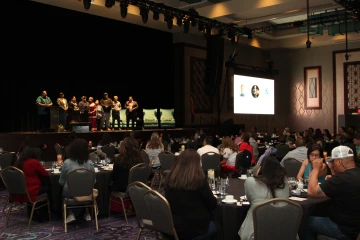
Congratulations to the 2024 Indigenous Resilience Leadership Awardees
The Southwest Adaptation Forum (SWAF) is the biennial gathering of practitioners, professionals, research, and community members who are working to accelerate effective climate adaptation and reduce the impacts of climates change in communities and landscapes across the Southwest.
The Southwest Adaptation Forum occurred on February 27th through the 29th, 2024 in Tucson, Arizona. This conference offered a variety of peer-to-peer learning, breakout discussions, short presentations, panel discussions, field trips, and networking opportunities.
In conjunction with the Southwest Adaptation Forum, The Indigenous Resilience Center honored four individuals at the Indigenous Resilience Awards. These four individuals are Amy Juan, Clifford Pablo, Ray Martinez, and Dr. Selso Villegas, all who exemplify great service to their communities.
The Honorees;
Amy Juan is a member of the Tohono O’odham Nation belonging to the communities of Comobabi, Ali Cukson, and Wecij Oidag. Juan, has worked closely with traditional medicine and food in various programs including climate change adaptation.
Clifford Pablo is a member of the Tohono O’odham Nation from the community of Wa:k. Pablo has been working with the Tohono O’odham Community College Agriculture program to teach and learn about agriculture and the environment. Pablo has been working to preserve his culture, environment, and precious water resources while adapting to the changing world around him.
Ray Martinez is a member of the Pueblo de San Ildefonso. Martinez has worked with the Department of Environment and Cultural Preservation for the past 20+ years. Martinez is prioritizing continuous monitoring of the Chromium Plume and providing accurate and frequent communication to Pueblo residents and Tribal Council.
Dr. Selso Villegas is a member of the Tohono O’odham Nation. Dr. Villegas graduated from the University of Arizona with a Master’s in Wildlife and Fisheries Science, and his PhD dissertation was on environmental contaminants. Dr. Villegas has spent the last 25 years working in executive positions in Natural and Water Resource Management for his tribe.
Congratulations to the recipients of the Indigenous Resilience Awards, we look forward to the next year!
Congratulations to the 2022 Indigenous Resilience Leadership Awardees
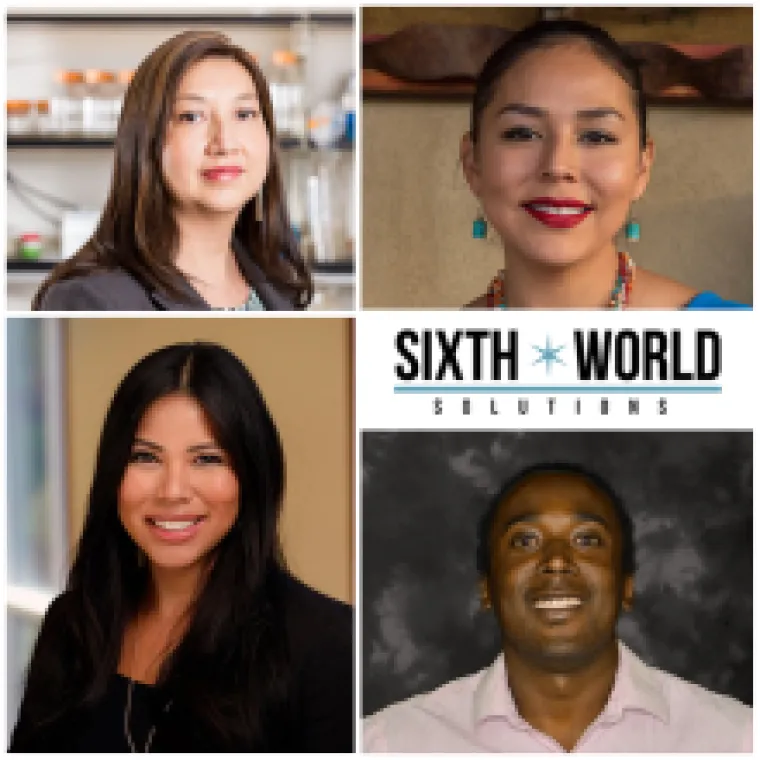
Dr. Otakuye Conroy-Ben
Dr. Timian M Godfrey
Sixth World Solutions, Janene Yazzie and Kern Collymore
This prestigious new honorary award recognizes outstanding individuals making a positive impact in tribal communities to create healthy environments. An award ceremony was held at the 2nd Annual Tribal Leaders Summit: Advancing Tribal Health in Phoenix, AZ on November 4th. IRes Director, Dr. Karletta Chief, presented these awards at the Resilience Award luncheon. The vision of IRes is that we see a world in which Indigenous communities are thriving and adaptable to meet environmental and societal challenges. IRes is supported by the University of Arizona Institute for Resilient Environments and Societies, and the Agnese Nelms Haury Program in Environment and Social Justice. IRes aims to position UArizona as a world leader in Indigenous resilience research, education, and outreach.

